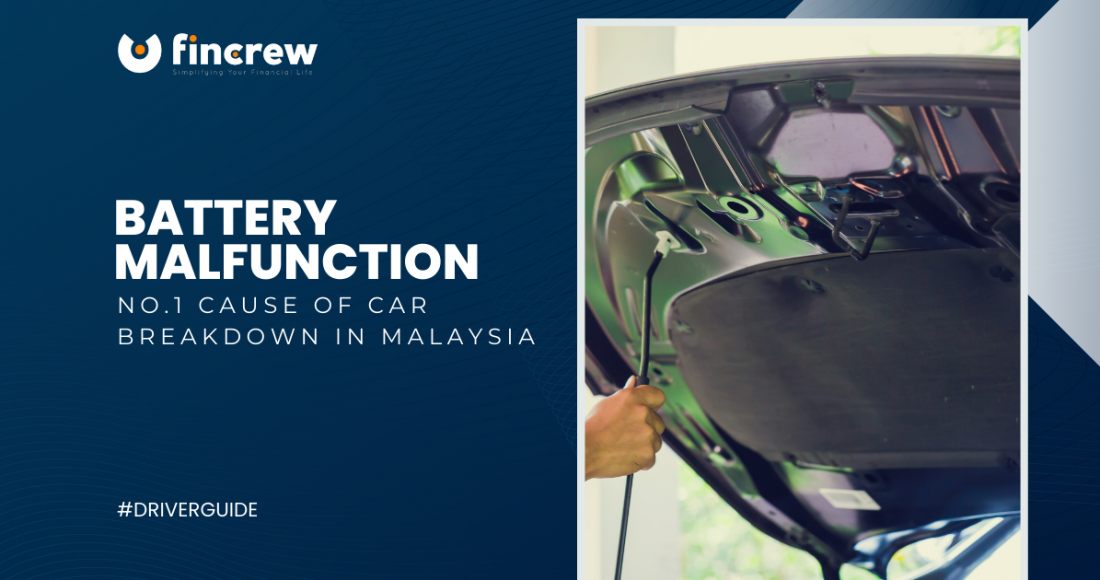The top cause of car breakdowns in Malaysia is the battery, according to a survey conducted by Bosch, one of Malaysia’s leading suppliers of automotive components.
Your car might not start if your battery is failing. The battery of a vehicle powers the starter motor, which then turns the alternator, which recharges the battery.
The most common cause of flat batteries is leaving the lights on when the engine is off. Several short journeys or a poor electrical connection may also contribute to battery malfunction.
Batteries Can Go Flat For The Following Reasons
- When you use your car for short trips or when it is left unused for a while
- Defective components
- The charging system of the vehicle is malfunctioning.
- The battery itself has a fault.
- Getting older
Why Won’t My Car Start
The term “dead battery” is usually used when a battery won’t start your car, although that isn’t technically accurate. They can recharge a drained battery due to leaving its headlights on or by a damaged alternator to its total capacity. They cannot refresh Batteries at the end of their service lives to restore their power level to that of a helpful unit. In this case, it is a dead battery and needs to be replaced.
It is possible to jump-start a discharged battery but not dead using another fully charged battery. The alternator may fully charge the battery after about 30 minutes of driving. The battery won’t recharge if the alternator or another part of your vehicle’s electrical system is damaged, and a mechanic or service station won’t be able to renew it. Before you replace your battery, if it keeps discharging, have your electrical system examined. What appears to be a bad battery may be an electrical problem. You will be stranded again and again if you have a problem with the electrical system.
How To Prevent a Flat Battery
As you exit the car, make sure to turn everything off. Although removing the ignition key may not turn off the lights, most modern vehicles have an alert sound when you open the door to indicate the lights are on.
In most cases, your battery will not have much opportunity to charge if you don’t make long trips very often. To rectify this, charge the battery overnight every two weeks. During your car’s service, the mechanic should ensure that the connections to your battery are secure and the terminals are clean and corrosion-free.
Moreover, most car batteries are guaranteed for 3 to 5 years, so you’re living on borrowed time. Replace your battery before you run out of juice.
When Buying a Battery, What Should I Consider?
What is the best battery for your vehicle? Here are a few tips to help you decide.
Find out what your vehicle’s original equipment manufacturer recommends in its manual:
- Battery Group Size – Choosing the right battery size for your vehicle will depend on its dimensions. There are several different battery group sizes to choose from.
- Cold-Cranking Amps (CCA) – CCA is essential for good cranking ability. It is the maximum amp a battery can support for 30 seconds at 0 degrees F before its voltage drops to an unusable level.
- Reserve Capacity (RC) – When the alternator fails, the battery powers the vehicle’s electrical system. Your battery’s maximum capacity is determined by how long it can provide ample power without falling below the minimum voltage needed to operate your vehicle for a given period.
The higher the number, the better for both CCA and RC. If you reside in a cold area, check the CCA rating when choosing a battery. On the other hand, you won’t need as much CCA if you live in a hot environment.





